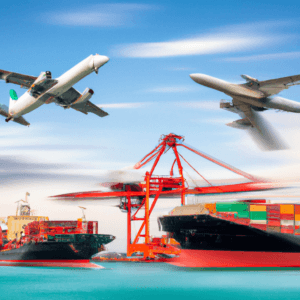**Blog Post: Port Strike Update**
*Summary:*
Ports are crucial hubs in the global supply chain, serving as gateways for goods to be transported across the world. However, when labor disputes arise at these ports, such as strikes by workers, it can have significant ripple effects on the economy and various industries. In this blog post, we will delve into the current port strike situation, its causes, impacts, and potential solutions.
—
**Introduction:**
In recent months, the news has been buzzing with reports of port strikes causing disruptions in the flow of goods and shipping delays. Port strikes occur when workers, often represented by labor unions, protest against working conditions, wages, or other grievances. These strikes can paralyze ports, leading to a backlog of ships, delayed deliveries, and increased costs for businesses.
**Causes of Port Strikes:**
Port strikes can be triggered by various factors, including disputes over wages, benefits, working hours, safety concerns, or disagreements over labor practices. In some cases, strikes may also be sparked by broader economic or political issues affecting the labor force.
**Impacts of Port Strikes:**
The consequences of port strikes are far-reaching and can affect multiple sectors of the economy. Businesses that rely on imported or exported goods may face supply chain disruptions, leading to product shortages, increased prices, and potential revenue losses. Additionally, delays in shipments can result in financial penalties, damaged customer relationships, and reduced competitiveness in the market.
**Recent Developments:**
As of [current date], several major ports are experiencing labor disputes, with workers demanding better working conditions and fair wages. These strikes have led to congestion at ports, delayed shipments, and logistical challenges for companies relying on timely deliveries.
**Potential Solutions:**
Resolving port strikes requires collaboration between labor unions, port authorities, and government agencies. Negotiating fair labor agreements, addressing worker grievances, and improving working conditions are essential steps in preventing future strikes. Additionally, investing in technology and infrastructure upgrades at ports can help streamline operations and reduce the risk of disruptions.
**Conclusion:**
The impact of port strikes on global trade and commerce cannot be understated. As stakeholders work towards finding mutually beneficial solutions, it is crucial to prioritize the well-being of workers, maintain the efficiency of port operations, and ensure the smooth flow of goods across borders. By addressing the root causes of labor disputes and fostering a cooperative environment, we can mitigate the risks associated with port strikes and safeguard the stability of the supply chain.
Remember, staying informed and advocating for fair labor practices is essential in shaping a sustainable and resilient port industry for the future.

Leave a Reply